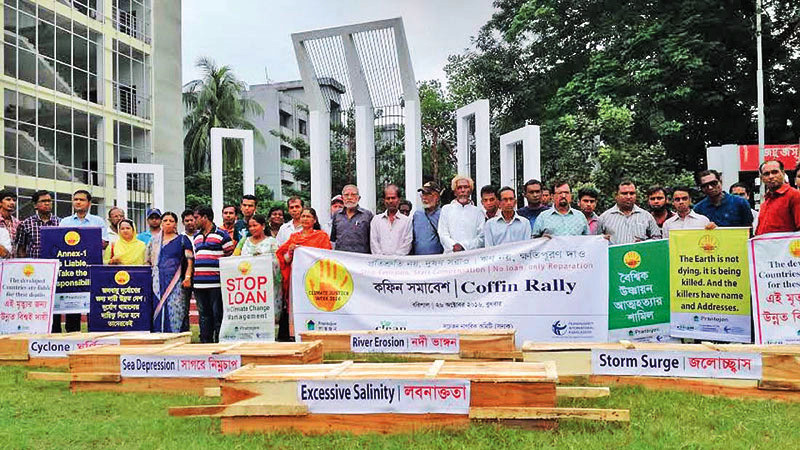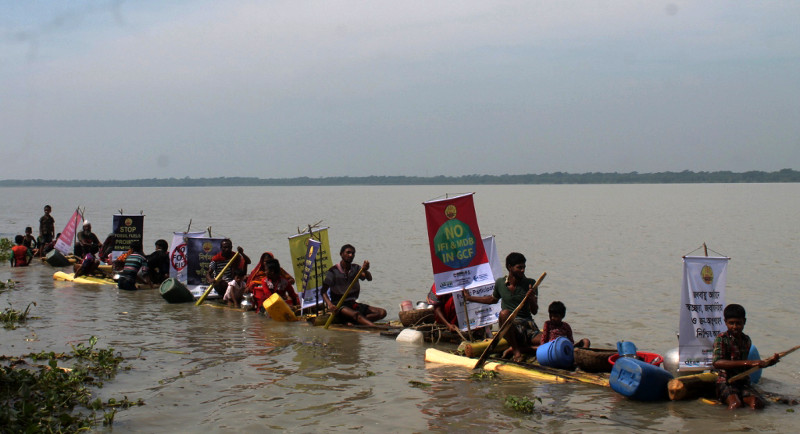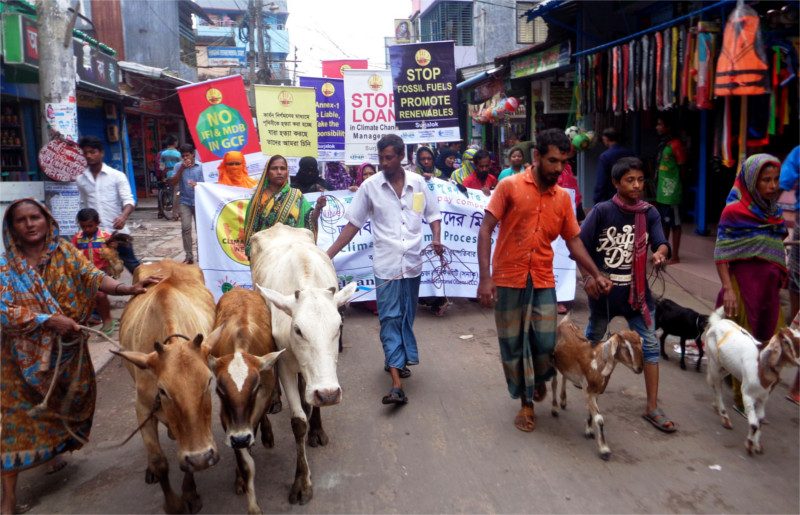Published: 01 November 2016


Published: 01 November 2016

 Earlier on 20 October, TI Bangladesh expressed concern over the World Bank's intent to provide a loan of US$ 2 billion as climate finance.
Earlier on 20 October, TI Bangladesh expressed concern over the World Bank's intent to provide a loan of US$ 2 billion as climate finance.  On the concluding day of Climate Justice Week, a press conference was held in the Capital on 28 October releasing an eleven-point declaration adopted on behalf of the affected people. Particular emphasis was given on the urgency to simplify the disbursement process of the Green Climate Fund so that climate vulnerable countries like Bangladesh can access its funds as they deserve.
On the concluding day of Climate Justice Week, a press conference was held in the Capital on 28 October releasing an eleven-point declaration adopted on behalf of the affected people. Particular emphasis was given on the urgency to simplify the disbursement process of the Green Climate Fund so that climate vulnerable countries like Bangladesh can access its funds as they deserve.Copyright © 2025 Transparency International Bangladesh